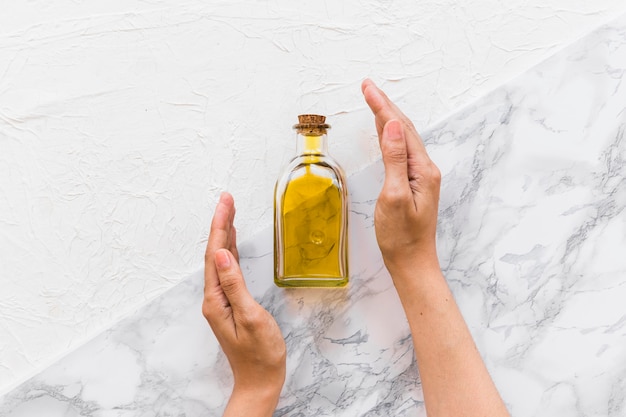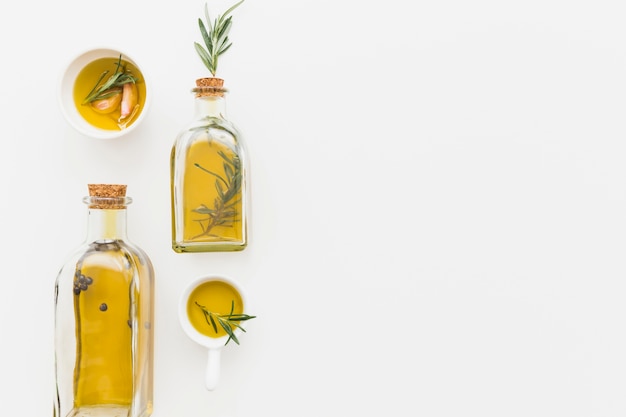According to her, it was "the only moisturizer that actually stayed on [her] skin and kept it hydrated through the night." (I’m told this is crucial for comfort when your skin is rapidly stretching and feeling tight and itchy as a result; oh, the miracle of life.)
Anyway, as the insatiably curious skin-care nerd that I am, I decided to do some research on whether or not olive oil is actually good for your skin. Join me down my rabbit hole now, please.
What are the benefits of using olive oil on your skin?
First the obvious: It has undeniable benefits like a high fatty acid content and it’s packed with antioxidants. It’s sometimes referred to as "liquid gold" and is famed for being the cornerstone of the heart-healthy Mediterranean diet.
But do those same benefits translate when it’s used topically, rather than ingested? Ah, that’s a bit more complicated. The short answer is "sort of," which I know isn’t the most satisfying response, but it’s an honest one.
Given olive oil’s high fat content, it has a thicker, more viscous texture that doesn’t evaporate as quickly as some other oils do (which explains my friend’s earlier comment about how it stays on her skin). This is great if you’re looking to treat extreme dryness—especially on the body—but when it comes to more delicate areas like your face, well, that’s a judgment call for you to make.
On one hand, olive oil is very hydrating and can help lubricate your skin. On the other hand, so do other oils like argan or sunflower seed oil—both of which are far less likely to clog your pores and won’t leave you smelling like a salad. On that note...
Who should avoid using olive oil on their skin?
Acne-prone peeps should definitely steer clear of using olive oil on their skin. It’s comedogenic, meaning it can clog your pores and cause breakouts.
Like any oil, a little goes a long way, so resist the urge to baste yourself in the stuff like a chicken you’re about to toss in the oven. This is especially true for your face, where we’d recommend using no more than a couple drops on damp skin to thin it out a little before application; this will also ensure that you get a smoother application and seal in the moisture.
The same goes for your body. Apply OO to damp skin and reserve it for your driest parts only (for us, it’s our heels and cuticles; for our friend, it’s her growing belly). Again, given its viscosity, it really isn’t a—shall we say—cosmetically elegant formula, so you don’t want to slather it all over like you would a lotion, lest you want to stick to everything.
Last but not least, we’ve also used OO as an eye makeup remover in a pinch and found that it does a surprisingly good job at melting away mascara without causing any stinging. (A pretty big win in our book since most things irritate our eyes.)
And what kind of olive oil should you use on your skin?
If you’re going to use olive oil on your skin, definitely go for the cold-pressed, unrefined, extra virgin olive oil (aka EVOO). Using one that’s cold-pressed ensures that you’re getting the highest content of good stuff (like those aforementioned antioxidants) and none of the added preservatives.


No comments:
Post a Comment